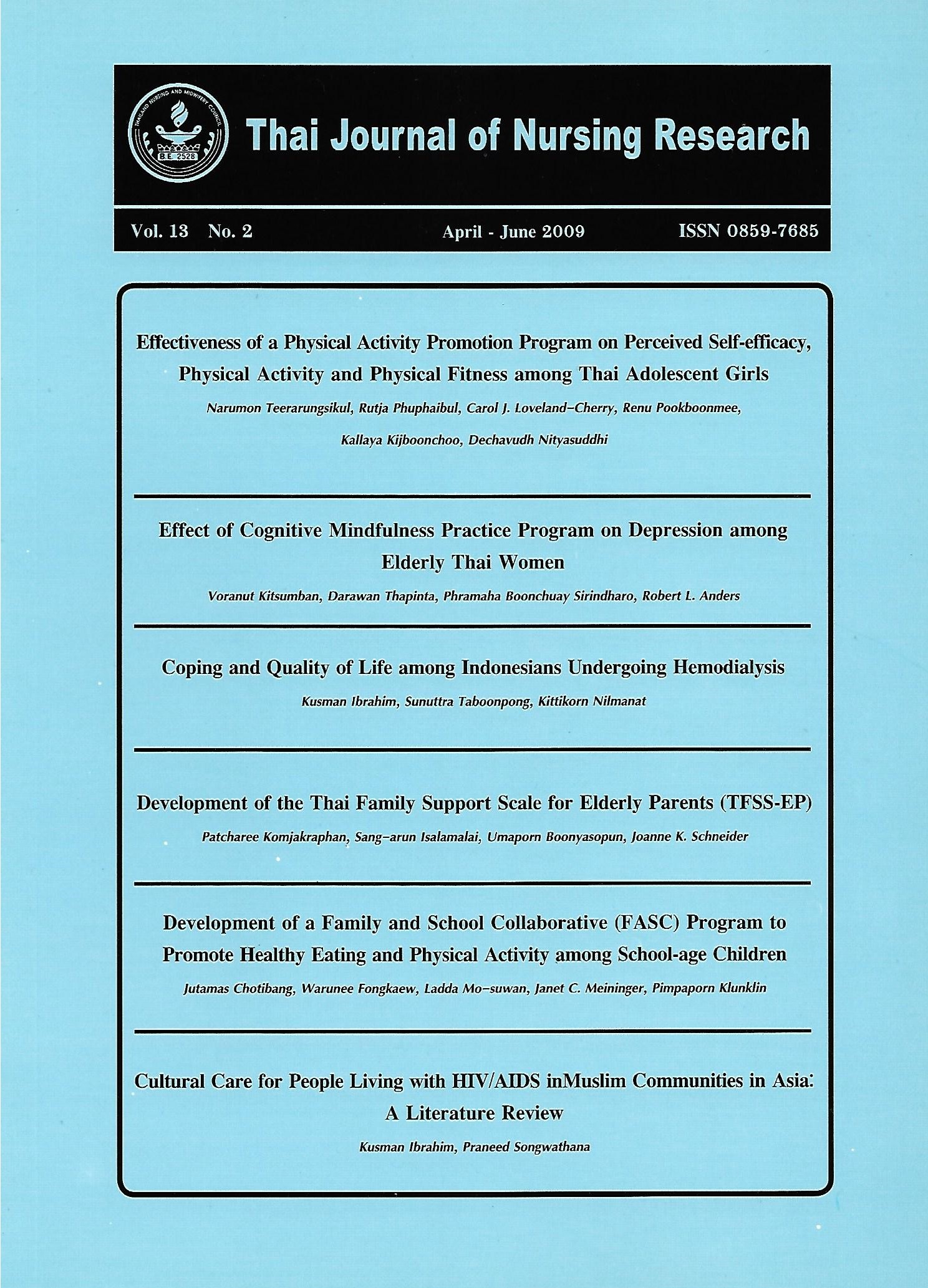Cultural Care for People Living with HIV/AIDS in Muslim Communities in Asia: A Literature Review
Keywords:
วัฒนธรรมการดูแล, ผู้ติดเชื้อและผู้ป่วยเอดส์มุสลิม, culture, caring, HIV/AIDS, Muslims, AsiaAbstract
บทคัดย่อ
ในระยะ 30 ปีที่ผ่านมา การติดเชื้อเอชไอวีและโรคเอดส์ยังคงได้รับความสนใจทั่วโลก มีการศึกษามากมายที่เน้นการระบาดของเชื้อไวรัสนี้ ซึ่งสะท้อนให้เห็นถึงจำนวนผู้ติดเชื้อที่พบมากขึ้นอย่างต่อเนื่อง โดยเฉพาะในประเทศที่กำลังพัฒนารวมทั้งประเทศที่มีชาวมุสลิมเป็นส่วนใหญ่ ประชาชนมมุสลิมมีการตอบสนองต่อการติดเชื้อเอชไอวีที่เฉพาะและเป็นเอกลักษณ์ บนพื้นฐานความเชื่อที่ว่าศาสนาช่วยในการปกป้องไม่ให้ประชาชนมีความเสี่ยงต่อการติดเชื้อ ดังนั้น ความเข้าใจเกี่ยวกับความเชื่อทางวัฒนธรรม การป้องกันและการดูแลผู้ติดเชื้อและผู้ป่วยเอดส์ มีความสำคัญต่อผู้ดูแลเพื่อพัฒนารูปแบบการดูแลผู้ติดเชื้อและผู้ป่วยเอดส์ที่สอดคล้องกับวัฒนธรรม อย่างไรก็ตาม องค์ความรู้ในการดูแลผู้ติดเชื้อและผู้ป่วยเอดส์ที่สอดคล้องกับวัฒนธรรมของกลุ่มมุสลิมที่อาศัยในแถบเอเชียยังมีน้อย การทบทวนวรรณกรรมครั้งนี้จึงมีวัตถุประสงค์เพื่อวิเคราะห์ความเชื่อทางวัฒนธรรมที่เกี่ยวข้องกับการดูแลผู้ติดเชื้อและผู้ป่วยเอดส์ในบริบทสังคมมุสลิมของประเทศแถบเอเชีย ผลการศึกษานี้จะนำไปสู่ข้อเสนอแนะและการประยุกต์ใช้ของทีมสุขภาพและนำไปสู่การวิจัยพัฒนาต่อไป
คำสำคัญ: วัฒนธรรมการดูแล ผู้ติดเชื้อและผู้ป่วยเอดส์มุสลิม
Abstract
The Human Immunodeficiency Virus (HIV) and Acquired Immune Deficiency Syndrome (AIDS) have obtained a great deal of attention worldwide over the past three decades. Numerous studies have been conducted to address this pandemic virus and disease, yet the number of infected individuals is increasing, particularly in developing countries, including those that are predominantly Muslim. Muslims historically have shown a unique response to HIV/AIDS due to their belief that their Islamic faith protects them from contracting the virus. Therefore, understanding the interface, among cultural beliefs, prevention and care for individuals with HIV/AIDS, is crucial for health care providers to develop culturally appropriate models of prevention, care and treatment. However, care that is culturally congruent for individuals with HIV/AIDS remains largely unexplored among Muslims in Asia. The purpose of this review of the literature was to examine cultural beliefs in relation to caring practices for people with HIV/AIDS in Muslim communities in Asia. Recommendations and implications for health care providers are highlighted, and the need for future research is suggested.
Key words: culture, caring, HIV/AIDS, Muslims, Asia
Downloads
How to Cite
Issue
Section
License
Copyright: The Pacific Rim International Journal of Nursing Research, Thailand Nursing & Midwifery Council has exclusive rights to publish, reproduce and distribute the manuscript and all contents therein.








.png)



